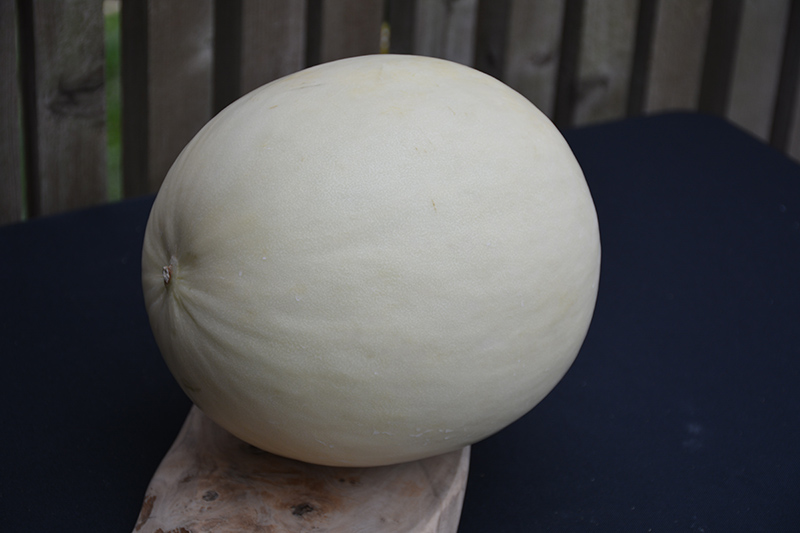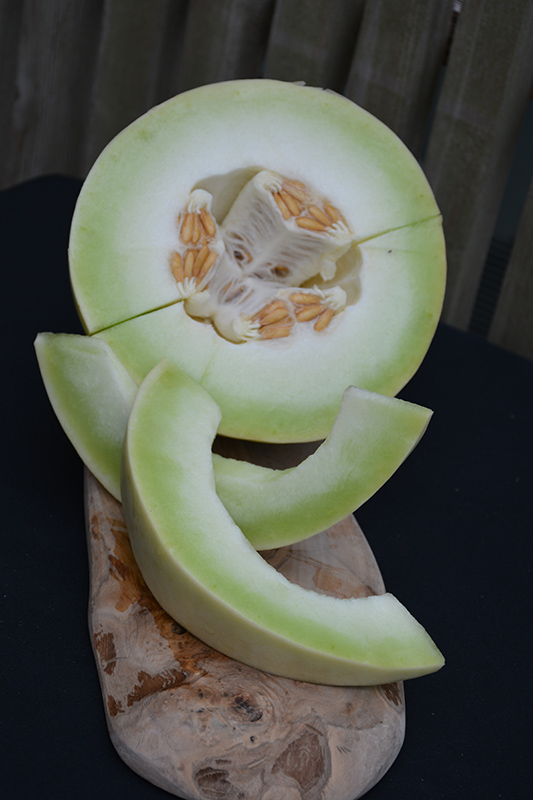Plant Finder
Earli-Dew Honeydew
Cucumis melo var. inodorus 'Earli-Dew'
Height: 18 inches
Spacing: 3 feet
Sunlight:
![]()
Hardiness Zone: (annual)
Description:
A lovely early maturing and vigorous vining variety; produces 8" round, golden green fruit that gives way to delicious light green flesh; sweet and firm, perfect for fresh eating, fruit salads and desserts
Edible Qualities
Earli-Dew Honeydew is an annual vegetable plant that is typically grown for its edible qualities. It produces buttery yellow round melons (which are technically 'berries') with light green overtones and light green flesh which are typically harvested when mature. The melons have a sweet taste.
The melons are most often used in the following ways:
- Fresh Eating
- Eating When Cooked/Prepared
- Juice-Making
- Freezing
Planting & Growing
Earli-Dew Honeydew will grow to be about 18 inches tall at maturity, with a spread of 6 feet. When planted in rows, individual plants should be spaced approximately 3 feet apart. This vegetable plant is an annual, which means that it will grow for one season in your garden and then die after producing a crop.
This plant is typically grown in a designated vegetable garden. It should only be grown in full sunlight. It does best in average to evenly moist conditions, but will not tolerate standing water. It is not particular as to soil type or pH. It is somewhat tolerant of urban pollution. Consider applying a thick mulch around the root zone over the growing season to conserve soil moisture. This is a selected variety of a species not originally from North America.





